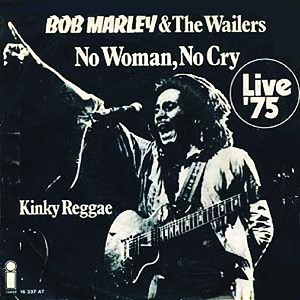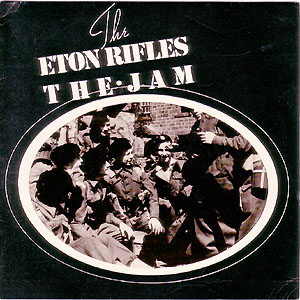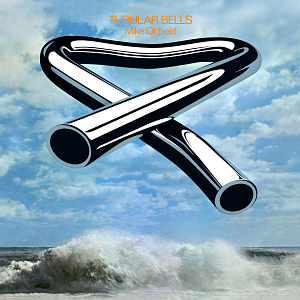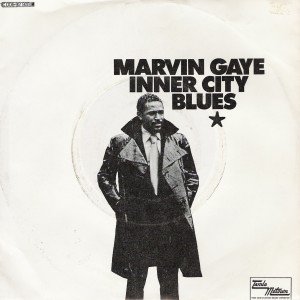THE 200
MOST
ESSENTIAL
SONGS
OF THE
1970s
It was the decade of glam,
disco, funk, Philly Soul, heavy metal, the singer/songwriter, punk and new
wave. Here are the 200 songs that mattered most during the Seventies, in
terms of influence, impact and success. To be eligible, the song needed to be
released- as a single or on an album- during the years 1970-1979.
|
|
60
 |
BECAUSE THE NIGHT
Patti Smith Group [1978]
Bruce Springsteen had an incomplete song that Patti Smith made into a chart hit. "Because The Night" is a romantic song that helped introduce a mainstream audience to the so-called "Godmother of Punk". The tender rock song helped earn her a reputation as that genre's poet laureate.
|
59
 |
CHASE
Giorgio Moroder [1978]
Giorgio Moroder will forever be associated with the dancefloor hits of Donna Summer. He co-wrote and produced a string of chart entries for her. His input was a major influence on the sound of disco and the electronic dance music that followed. He explored new territory with the Academy Award winning soundtrack for the film 'Midnight Express'. "Chase" was a thrilling instrumental that saw Moroder chart in his own right.
|
58
 |
NO WOMAN NO CRY
Bob Marley & The Wailers [1974]
The uplifting "No Woman No Cry" became Bob Marley's first success in the UK. Suddenly, a wider audience was exposed not only to the artist but reggae in general. Suddenly a pop audience was converted to the genre's rhythms. Marley's music possessed optimism, spirituality and power in its lyrics and his delivery.
|
57
 |
THE ETON RIFLES
The Jam [1979]
The release of "The Eton Rifles" changed the fortunes of punk / new wave band the Jam. They had been charting in Britain since 1977, but this single became the group's first Top 10 success. Pop and politics fused to create an angry protest song. Paul Weller would craft many others throughout the 1980s for both The Jam and (later) The Style Council.
|
56
 |
TUBULAR BELLS
Mike Oldfield [1973]
Aged 19 at the time, Mike Oldfield created a unique album with 'Tubular Bells'. The title song was a skilfully executed aural creation. It was outstanding at the time and is still awe-inspiring today. "Tubular Bells" helped define new age music.
|
55
 |
SUPERSTITION
Stevie Wonder [1972]
After Motown granted him greater creative freedom, Stevie Wonder flexed his musical muscle in the 1970s. As the genius entered his halcyon era, the musician funked his way to the top of the US chart with the timeless "Superstition". Initially, Wonder had composed the song for Jeff Beck who played on the track. Once completed, Wonder realized the track's hit potential and kept it for himself. It was included on his 'Talking Book' album.
|
54
 |
WHITE RIOT
The Clash [1977]
The Clash was an integral group on the UK punk scene. Debut single "White Riot" dented the British Top 40. It kick-started a string of chart entries that thrived in the 1980s. The single reflected troubled times in London, where race riots were raging.
|
53
 |
INNER CITY BLUES
(MAKE ME WANNA HOLLER)
Marvin Gaye [1971]
"Inner City Blues" sees Marvin Gaye deliver one of his smoothest vocals on a song that bemoans the struggle of urban life. His rich voice softens the mood but never detracts from the targeted lyrics. The cost of living, the Vietnam War and the police all get a spray on this track lifted off Gaye's 'What's Going On' album. Few musicians were writing songs like this at the time with the conviction he conveyed.
|
52
|
HOTEL CALIFORNIA
The Eagles [1976]
Featuring one of the best known guitar riffs of all time, "Hotel California" is the defining Eagles song. The group was a key influence on American rock and this track became its crowning glory. With lyrics that intrigue us to this day, the band dropped a radio staple. Group member Don Felder came up with the guitar riff. Bandmates Don Henley and Glenn Frey built a classic around that starting point. |
51
 |
DON'T STOP
Fleetwood Mac [1977]
In the mid-70s, Fleetwood Mac's sound gravitated further from its British blues roots and closer towards West Coast rock. This was largely due to the addition of Stevie Nicks and Lindsey Buckingham in the band's line-up. "Don't Stop", written by English member Christine McVie, is a beloved track from the group's behemoth 'Rumours'. The keyboards set up the song. Mick Fleetwood enters soon after, pounding away on his drums. McVie and Buckingham shine in their vocal interplay towards the cut's conclusion. Fleetwood Mac make it all seem easy, but the song is expertly performed.
|
Saturday, April 16, 2016
THE 200 ESSENTIAL SONGS OF THE 1970s. This update: #60- 51. Continues tomorrow.
Subscribe to:
Post Comments (Atom)
No comments:
Post a Comment